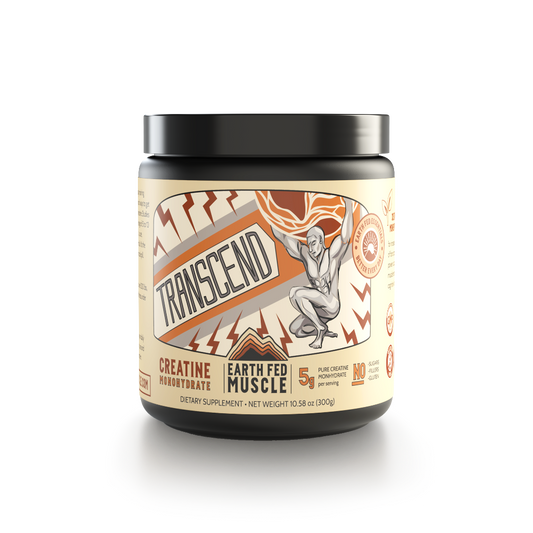This is the second post in our ongoing creatine series. Click below to read the other articles:
- Creatine - The Basics
- Creatine - An Introduction
- Creatine - A Review
- Creatine Loading & Timing
- Creatine & Combat Sports
Summary:
Creatine (specifically creatine monohydrate) is one of the most widely studied supplements in sports nutrition today. It’s also one of the best-selling supplements for athletes and bodybuilders alike for gaining muscle mass and improving overall power and physical performance. However, there’s a misconception that only athletes can benefit from consuming this supplement when in fact everyone can benefit adding creatine into their daily nutrition habits.
In this article we will discuss:
- What is creatine?
- Who can benefit from taking creatine?
- What are the benefits of creatine?
- What are the benefits of creatine for athletes and active individuals?
- How to use creatine?
What is Creatine?
We know that creatine is a popular supplement. But what exactly is creatine?
Creatine is found primarily in red meat and seafood. (1, 2, 3, 4) While around 95% of creatine in the body can be found in muscle, the remaining amount can be found in the brain and testes. (5)

The body needs to replenish about 1-3 grams of creatine per day to maintain normal (unsupplemented) creatine stores depending on muscle mass. In fact, about half of the daily need for creatine is obtained from the diet. Trying to figure out how much creatine you consume? To give you an example, about one pound of uncooked beef and salmon provides about 1-2 grams of creatine.
Who can benefit from supplementing with creatine?
Everyone!
There’s a misconception that only athletes can benefit from consuming this supplement when in fact everyone can benefit adding creatine into their daily nutrition habits.
The Benefits of Creatine
There are a ridiculous amount of benefits to taking creatine. Some basic creatine benefits include:
Improves Brain Health. One study in particular took a look at the effect of creatine supplementation on brain function in adults age 80 and older. The results showed a significant effect on subjects who supplemented with creatine, concluding that creatine does in fact aid in brain health in the elderly.(7)
Reduces Risk of Depression. As we now know, creatine is extremely beneficial for cognitive health. It even aids in individuals with depression or bipolar disorder. One study found depressed women who supplemented with creatine had improved their HAM-D scores (a measure of depression) as soon as 2 weeks of supplementation.(8)
Helps with Sleep. Are you a troubled sleeper? Or maybe you’re a new parent and sleep just isn’t happening for you? Creatine can help. Creatine was shown to help sleep-deprived individuals who had to perform complex executive tasks. Even when going off of 24 hours of zero sleep, creatine showed to have a positive effect on mood and tasks that place a high amount of stress on the prefrontal cortex.(9)
Improves Muscle in Older Adults. As we age, our ability to build muscle and obtain it becomes harder and harder. However, creatine can help. One paper, ‘Creatine Supplementation in the Elderly: is Resistance Training Really Needed?’ found that creatine (without any type of resistance training) was responsible for decreasing the rate of muscle wastage in elderly adults. (10)

Creatine helps the cells in your muscles produce more energy, improves exercise performance, improves muscle growth, helps with different neurological diseases and may even lower blood sugar levels.
If you are an athlete looking for a supplement to help improve your overall performance, creatine is for you. What are some ergogenic benefits you can gain from supplementing with creatine?
Transcend Creatine
$39.99

The Benefits of Creatine for Athletes
Some of these benefits include:
- Increased single and repetitive sprint performance
- Increased muscle mass
- Increased strength adaptations during training
- Enhanced glycogen synthesis
- Increased anaerobic threshold
- Enhancement of aerobic capacity via greater shuttling of ATP from mitochondria
- Increased work capacity
- Enhanced recovery
- Overall greater training tolerance (6)
How to Use Creatine
When it comes to incorporating a creatine supplement into your diet, most individuals approach it with a loading phase and then maintain with a maintenance phase. Most loading phases call for two scoops (or ten grams) four times daily for four days, accumulating 40 grams. After the four days, the maintenance phase for individuals under 200lbs is five grams a day. The maintenance phase for individuals 200lbs and over is ten grams a day.
If you take creatine all the time, loading is unnecessary. Read our Creatine Timing article to learn more.
If you’re wondering if you should supplement your nutrition with creatine, the answer most likely is yes.
Follow along as we continue our Creatine Series.
For any questions regarding Transcend Creatine or any other Earth Fed Muscle products, please reach out to support@earhtfedmuscle.com.
Sources
- https://www.sciencedirect.com/science/article/pii/S0378111907000340?via%3Dihub
- https://doi.org/10.1007/s00239-004-2615-x
- https://doi.org/10.1007/s00726-011-0856-8
- https://link.springer.com/article/10.1007%2Fs00726-011-0913-3
- https://jissn.biomedcentral.com/articles/10.1186/1550-2783-4-6
- https://www.exerciseandsportnutritionlab.com/wp-content/uploads/2018/10/ISNFF-Canada-10-15-18-2.pdf
- https://www.sciencedirect.com/science/article/pii/S0531556518300263
- https://www.researchgate.net/publication/5859200_Creatine_monohydrate_in_resistant_depression_A_preliminary_study
- https://www.researchgate.net/publication/7356714_Effect_of_creatine_supplementation_and_sleep_deprivation_with_mild_exercise_on_cognitive_and_psychomotor_performance_mood_state_and_plasma_concentrations_of_catecholamines_and_cortisol
- https://pdfs.semanticscholar.org/d272/fe29b37ced259c275b5758650efa92c48aca.pdf

